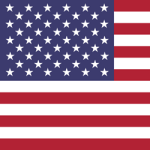Traditionally, the World Bank President has always been a U.S. citizen nominated by the United States.
Governor
The U.S. Secretary of the Treasury is the United States’ Governor for the World Bank. The Governor is responsible for the management of the United States’ interests in the institution, exercising influence by keeping an open line of communication with the President of the World Bank and meeting with fellow Governors at the Annual and Spring Meetings of the Boards of Governors and the Development Committee.
Executive Director
The Governor delegates day-to-day handling of the United States’ diverse interests at the Bank to the U.S. Executive Director, who is nominated by the President of the United States and confirmed by the U.S. Senate. As an official of the World Bank Group, the U.S. Executive Director has a duty to support the institution’s mission as well as to represent the interests of the American people.
The Executive Director is supported by an Alternate Executive Director and a team of advisors representing different government agencies including the U.S. Department of the Treasury, U.S. Department of State, U.S. Agency for International Development, and U.S. Department of Commerce.
The U.S. Executive Director represents the United States on the 25-member Board of Directors of the World Bank Group. The Executive Directors oversee the Bank’s governance and annual commitments of over $60 billion as well as the implementation of the World Bank’s mission to end extreme poverty and boost prosperity on a livable planet.
The Board of Executive Directors, who reside in Washington, D.C., meets regularly throughout the year (normally at least twice a week) to review and act on lending operations, new policy directions, and financial matters. In keeping with the World Bank Group’s Access to Information Policy, the monthly Boards Calendar is available to the public.
Shares and Voting Power
The World Bank Group has a weighted system of voting. All members of the Bank receive votes consisting of share votes (one vote for each share of the Bank’s capital stock held by the member) plus basic votes (calculated so that the sum of all basic votes is equal to 5.55% of the sum of basic votes and share votes for all members). The voting power distribution differs among organizations within the World Bank Group.
For the latest voting status, please visit the Voting Powers page.

